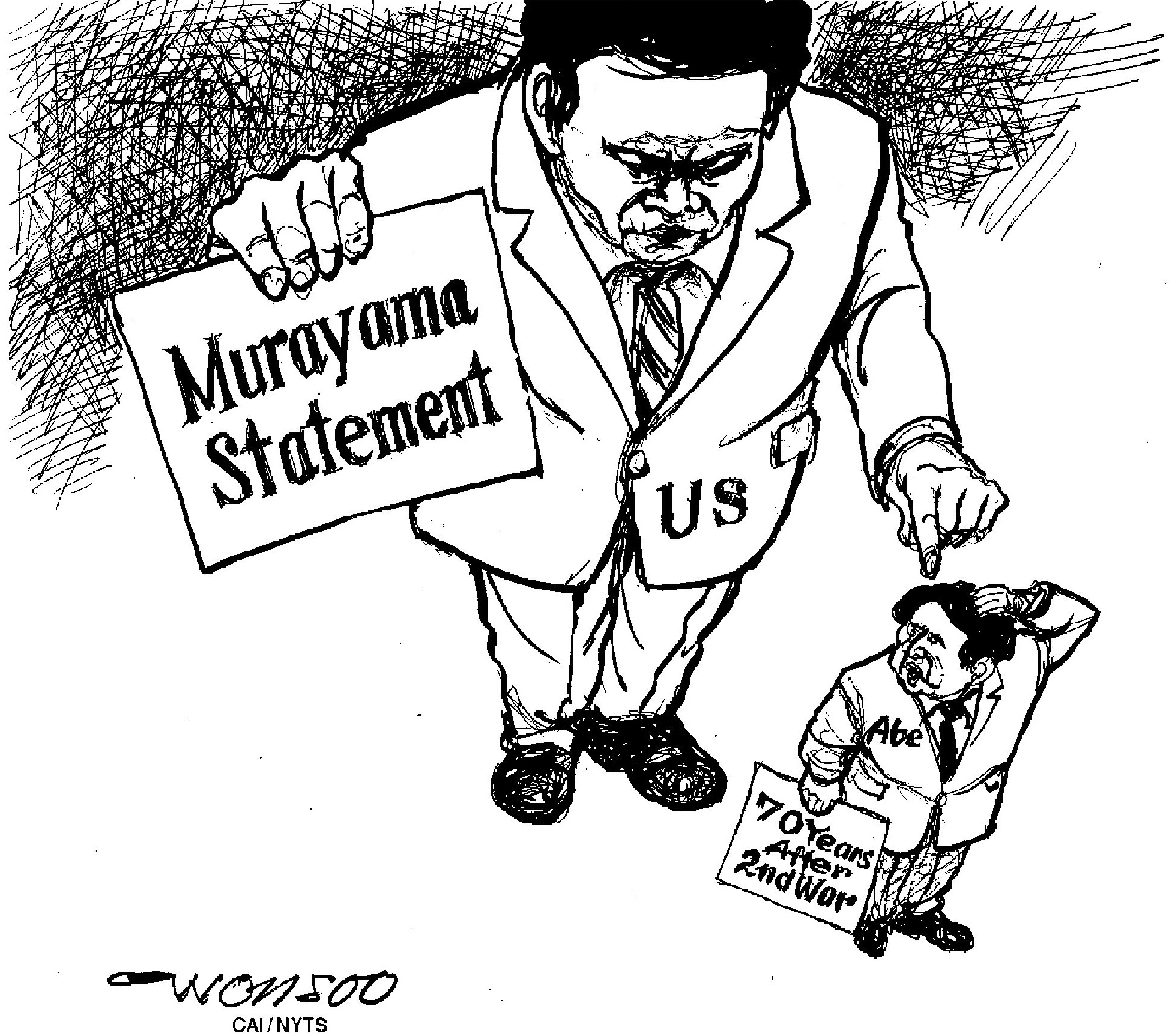American diplomats like to portray their country's allies in glowing terms. So the world should take note when they do not — such as when U.S. Under Secretary of State Wendy Sherman, at a recent conference in Washington, on Asian security, publicly scolded South Korea for its seemingly endless vilification of Japan. According to Sherman, South Korea's stance — reflected in its demand that Japan apologize, once again, for forcing Korean women to provide sexual services to the Imperial Army during World War II — has produced "paralysis, not progress."
But Sherman's criticism could also be leveled against Japan. Prime Minister Shinzo Abe has rarely missed an opportunity to provoke Japan's Korean critics, whether by visiting Tokyo's Yasukuni shrine, where the "souls" of 14 Class A war criminals are enshrined, or embracing revisionist critiques of previous official apologies for Japanese aggression.
Instead of working together to help their American ally confront the challenges posed by a rising China and the North Korean nuclear threat, South Korea and Japan have allowed their rancor to stymie effective action. This seemingly endless tension has been frustrating — and worrying — American leaders for years, especially as it has undermined the United States' strategic "pivot" toward Asia.



















With your current subscription plan you can comment on stories. However, before writing your first comment, please create a display name in the Profile section of your subscriber account page.